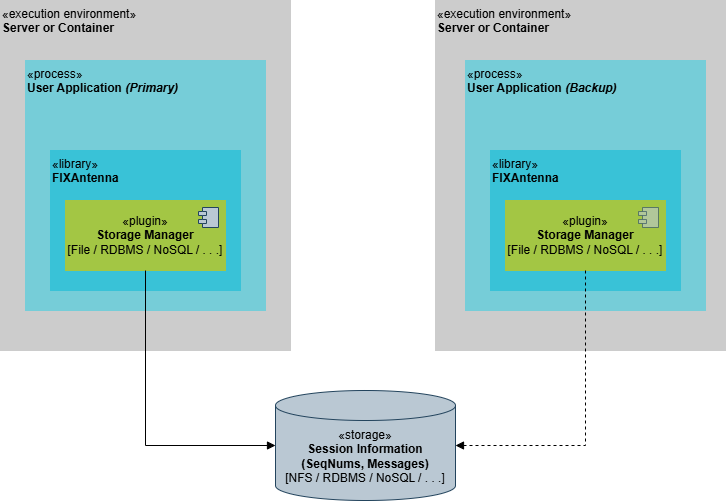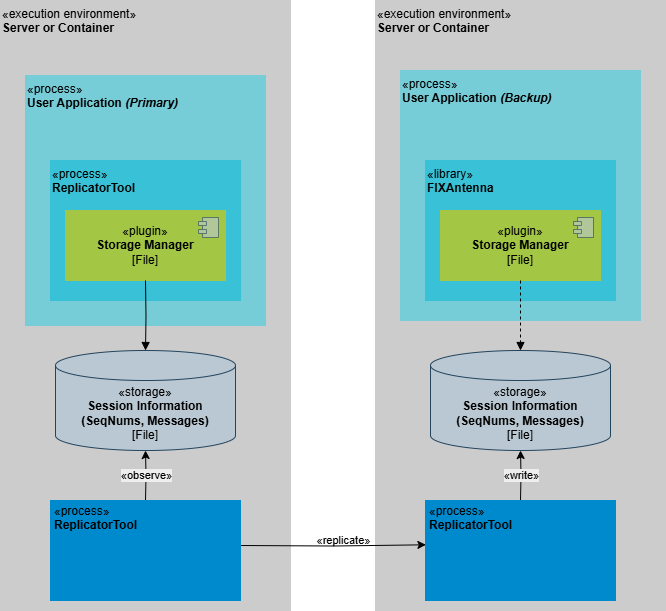FIX Antenna® C++ is specifically designed to deliver high performance. It can deliver over 100,000 messages per second on a single CPU and has been benchmarked at 500,000 messages/sec steady throughput with 500 sessions processing 1,000 messages per/second each. This level of performance means it is an ideal solution for exchanges, sell sides and program trading operations. FIX Antenna C++ FIX engine is currently deployed in some of the most demanding environments in the world.
FIX Antenna C++ FIX engine is not purely a performance engine. It has a rich feature set to support the variety of requirements that a FIX engine must fulfill. It supports FIX 4.0, 4.1, 4.2, 4.3, 4.4, 5.0, 5.0 SP1, 5.0 SP2, FIX Latest and FAST. It also comes with a rich UI for monitoring session statuses and parameters in real time on desktop app or web browser.
All libraries/servers are pre-configured for and certified with multiple exchanges. Our products come with 24x7 support worldwide and on-demand software escrow. FIX connectivity solution based on FIX application server FIXEdge C++ is also developed.
Features
| Feature | Description |
|---|---|
| High throughput / Low latency |
The engine has been benchmarked on this hardware with the following results:
Latest performance testing results for FIX Antenna C++ can be found here. Ready for use with OS kernel bypass NIC card Solarflare™ OpenOnload. |
| Supports standard FIX |
|
| Session management | Session management:
|
| Delivery modes |
|
| Reliability and redundancy |
|
| Security |
|
| Performance tuning |
|
| Monitoring and administration |
|
| Message composition API |
|
| FAST Antenna Codec |
FAST Antenna Codec is a library written in ANSI C++. It is a full implementation of FAST PROTOCOL. |
| Integration |
|
| Packaging |
The package includes:
|
High Availability
FIX Antenna C++ supports the High Availability (HA) requirements of applications in several ways:
- It stores session state in an application-specified storage location. As long as this storage is accessible to a backup application, FA uses the session state to continue sessions without data loss, reconciling sequence numbers per the FIX protocol.
- It provides an API for applications to retrieve session state information. This allows applications to leverage their own state-sharing mechanisms.
- It includes a state replication tool.
- It offers an API for remote control of sessions.
|
FIX Antenna Cluster: shared storage
 |
FIX Antenna Cluster: replicator
 |
Architecture
FIX engine is built using real time design patterns proven with over ten years of practice.
The design of FIX Antenna C++ allows supporting various modes to maximize high throughput, achieve low latency, or operate in a custom mode with balanced throughput and latency. The internal design also allows controlling the number of threads by fixing this number in case of multiple FIX sessions, to share time between them or by dedicating threads for individual FIX sessions.
Access to low level parameters is provided to tune TCP/IP performance (Nagel's algorithm), choose the type of storage for state recovery, collect run-time statistics, measure time taken by a particular operation, as well as turn on and turn off a particular feature, among others, elaborated on here.
APIs
FIX Antenna C++ is a full implementation of FIX protocol. It provides the following main APIs for trading applications to:
- Create multiple FIX sessions (initiators and acceptors)
- Open and close FIX sessions
- Form FIX and FIXML messages
- Parse FIX and FIXML messages
- Validate FIX messages
- Send and receive FIX messages
- Set sequence numbers
- Configure a schedule for sessions
- SSL support
- SSL certificate authentication
Smart resend request processing logic:
- Four strategies for processing out-of-sequence messages:
- FIX protocol compliant processing (ResendAlways)
- Don't save resend request duplicates (RequestOnce)
- Ignore sequence gaps when message sequencing is not important (Ignoregap)
- Delay message processing till sequence synchronization (Queue)
- Ability to limit the volume of messages sent as a reply on resend request
- Option to ignore resend request duplicates
Supported Compilers
FIX Antenna C++ is tested on a wide variety of compilers and platforms. The binary package is available right away for the platforms listed below:
| Operating System | Compiler | 64-bit |
|---|---|---|
| Windows |
MS Visual C++ 2022 |
 |
| Linux RHEL 9 | C++ 11 ABI |  |
| Linux Ubuntu 24.04 | C++ 11 ABI |  |
The same codebase (except low-level platform dependent code) is compiled and tested on all platforms!
Pricing Overview
We provide cost-effective perpetual and annual licensing options that are tailored specifically to meet your operational needs. These models are customized based on your preferred support level (ranging from business hours to 24x5/7 coverage with varying Service Level Agreements (SLA)), the number of machines required, and your specific deployment environment. Licenses for non-production environments, such as development, testing, and backup, are offered separately at 50% of the cost of a production license.
Explore Licensing Models sales@b2bits.com
sales@b2bits.com